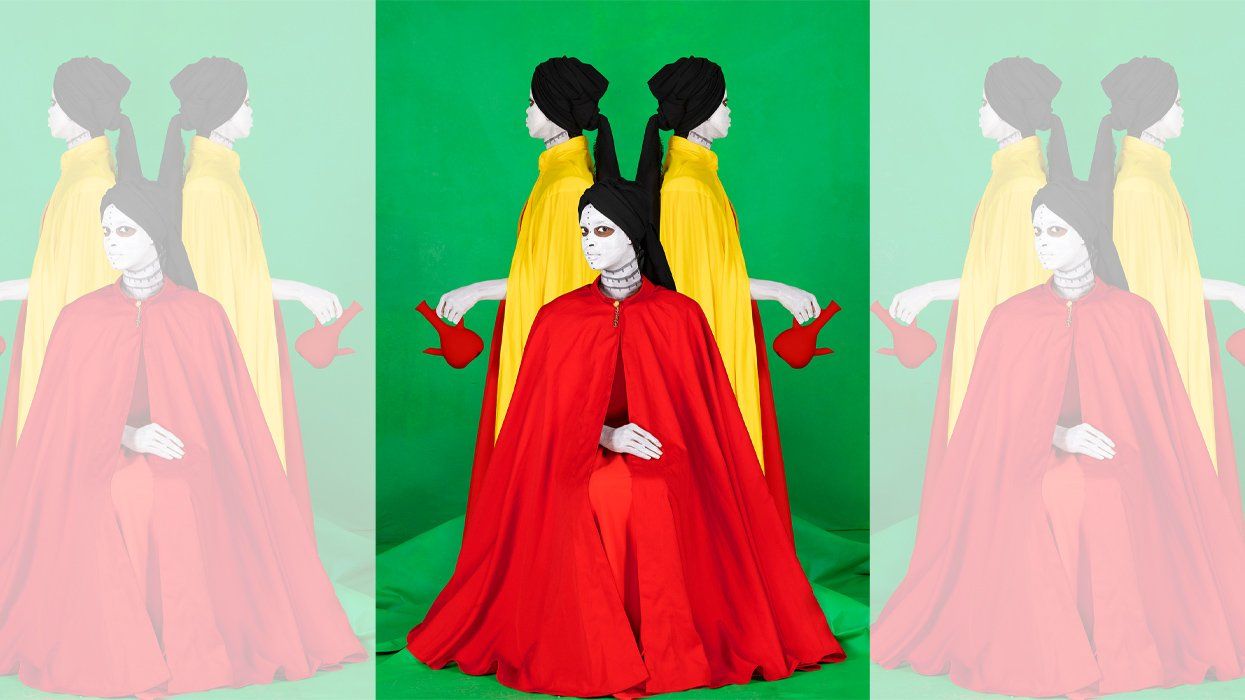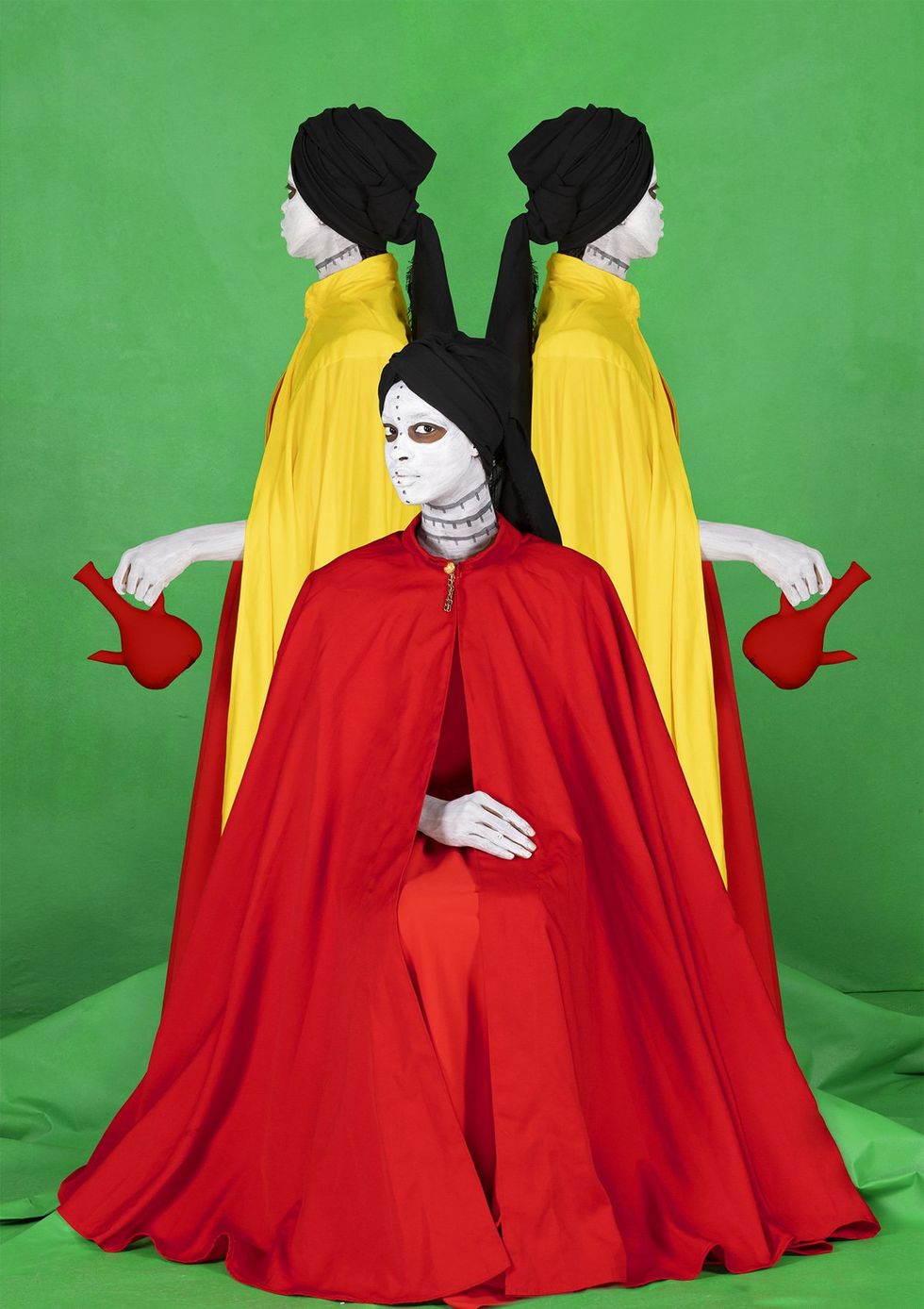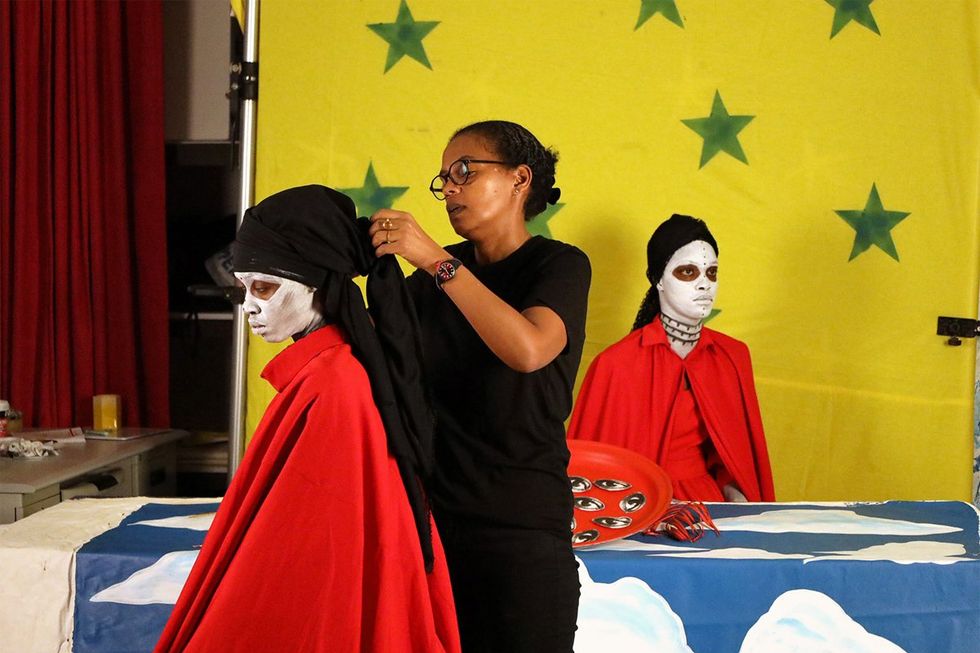Virtual Travel
The Artist Behind This Surreal Photo of Ethiopian Identity
The Artist Behind This Surreal Photo of Ethiopian Identity

"To speak in silence" says volumes without uttering a single word.
March 17 2023 11:22 AM EST
By continuing to use our site, you agree to our Privacy Policy and Terms of Use.
The Artist Behind This Surreal Photo of Ethiopian Identity

"To speak in silence" says volumes without uttering a single word.
By Jacqui Palumbo, CNN
(CNN) -- A former photojournalist, Aïda Muluneh now creates images that pose questions, rather than offering answers.
Muluneh has spent years creating surrealist photographs of stately African women bearing symbols that reckon with conflict, history and power. Painted eye motifs — as well as her subjects' unflinching gaze — represent the need to bear witness, chairs represent seats of influence, and curtains pull back to show the stagecraft of politics.
Now, the Ethiopian artist's images have taken over hundreds of bus shelters in New York, Chicago, Boston and her current home of Abidjan, Ivory Coast, through the exhibition "Aïda Muluneh: This is where I am," commissioned by Public Art Fund, a New York City-based nonprofit.
Though Muluneh's work has already served as public art, including open-air exhibitions in Europe, "This is where I am" is her largest public installation to date.
"Whenever I have an opportunity to display my work in very public spaces, I usually engage with those kinds of projects," she said. "I've always believed you have to bring art to the people as well, not only contain it within elite spaces, or museums or galleries."
In one striking image from the installation, titled "To speak in silence," Muluneh uses a recurring object in her work — the traditional Ethiopian coffee pot, or jebena — as a call for open dialogue in her birth country.
Muluneh won't be drawn on exactly what dialogue needs to be had, but in recent years Ethiopia has seen political instability, and armed conflict in the country's Tigray region.
"I come from a culture where we don't speak openly about things. There isn't really open discourse," Muluneh said in a phone interview.

"To speak in silence," as with her other images, bears signifiers instantly recognizable within her culture, Muluneh said. The scene is rendered in the vivid green, yellow and red of Ethiopia's flag, while a seated woman, eyes to the camera, is flanked by twin figures who each hold the curved handle of the jebena. In perfect symmetry, they tilt the vessels, though no liquid spills.
"Our coffee ceremony has a lot of symbolism in it... it's a gathering point to have discussions, to enjoy moments, and so forth," Muluneh explained. For her, the jebena "is symbolic as a form of communication."
Across her work, Muluneh uses hand-painted backdrops and body paint on her models — who have been cast from Ethiopia and the Ivory Coast — to heighten the images' potency and dreamlike effect.
She has produced a series around water scarcity for the nonprofit WaterAid, photographed in the inhospitable salt flats of Dallol, Ethiopia, as well as work for Norway's Nobel Peace Center, exploring how hunger is weaponized during war.
The latest body of work takes its name from the poem "This is where I am" by the Ethiopian poet and novelist Tsegaye Gabre-Medhin, written in 1974 — the year that the Ethiopian Revolution began, and that Muluneh was born. Five years later, Muluneh and her mother left the country, moving to Yemen, England and Cyprus, and eventually, Canada.
The poem's emotionally charged prose is set against the backdrop of war as the protagonist watches on in horror, bearing the weight of responsibility.
Gabre-Medhin "expresses this sense of helplessness or frustration" in dealing with the impact of war, Muluneh explains — "all these things that as artists, we become witnesses to. We play a role in documenting those moments."

But Muluneh's images are more enigmatic than direct. World events are rarely neat, and Muluneh resists the idea that open discussions mean having to take hardline stances.
"With this body of work, I'm really curious how the reception is going to be from my own people," she said. "But these are the conversations I feel we need to have — regardless of whether people want to have it or not — and I think we spend too much time in silence."
"Aida Muluneh: This is where I am" runs through May at more than 330 bus stops in New York City, Chicago, Boston and Abidjan.
Snap, looks at the power of a single photograph, chronicling stories about how both modern and historical images have been made.
The-CNN-Wire
™ & © 2023 Cable News Network, Inc., a Warner Bros. Discovery Company. All rights reserved.